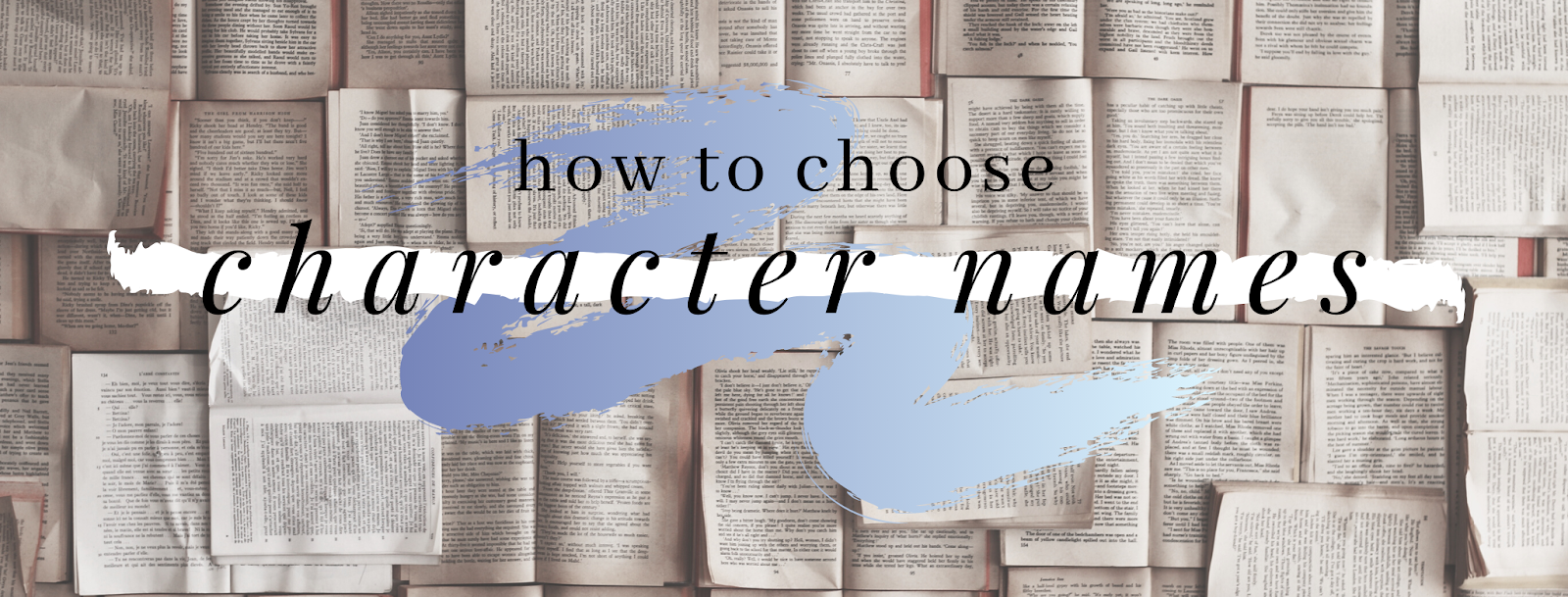Choosing Character Names

When writing a book, of course you'd include character names. Names are vital. Without a name, you don't know who the character is, or what they're like. It's a key part in description and without it, your book may seem confusing or mysterious.
You could think of a character as a story: their backstory being the plot, their emotional, physical and mental growth as the theme, and their name as the title. You want people to finish reading your book, think of a character and say their name, then recall all the hardships they endured and how they grew throughout the story. A character will be remembered by not only their experience, but also how they are presented, their name included.
There are several ways to select a name for your character. I would suggest first writing out your story outline and which role(s) this particular character plays, which will allow you to get to know him/her/them, then proceed to pick whichever name feels like it encompasses their journey. Once you complete those steps, then you've got to think up names for all of your characters; the tips below can aid you in your process!
What type of names might I use?
A completely random name
This is quite a common practice; many authors select a name off of some obscure name generator or use a popular, well-known name. It's rather simple to find a list of names, maybe from a generator or a baby name website. Despite the names possibly being common and not necessarily unique, many people appreciate the simplicity of the name, which is alright! Although I personally like to add a little touch of the story to a character's name, as long as you, both as an author and a reader, can picture your character and their attributes simply by thinking of their name, then you're good to go!
A name with a (hidden) meaning
Katniss Everdeen from The Hunger Games was named for a water plant, katniss, which roughly translates into archer, Starr Carter from The Hate U Give was named for being the light in her father's dark life, and the protagonist's name from The Lord of the Rings, Frodo, originates from the Old English word fród meaning "wise by experience". Every book has a theme, or at least symbols or components that define the book, whether it be plain to see or requires more thinking. A protagonist who is a main part of the plot would likely have a name that is somewhat related to symbolic components of the story, so that the character is connected to whatever is occurring. A great way to come up with your own name is to go on Google Translate (or some other translating service), choose a symbol or important item/word, then translate that into several languages, keeping an eye on the newly translated word as you go along. These words can be slightly altered to fit your character's taste, giving them a unique name that has a direct connection to your story.
A name fitting an era and/or setting
Just like clothing or music, names are different in every world or universe. Depending on the country that your story is set in, your character will have a unique name that originates from that country (or contrasts, depending on who your character is). Also consider cultural influences that may have played a role in creating the names. Just make sure that your character must feel at home in their universe (or like an outsider, again depending on what your plot is), and that requires them being normal. If your story is set in the Victorian era, then you ought to choose a name that was popular or known to have existed at that time in order for it to be historically accurate, while if you're in a fantasy world, you're allowed to do whatever!
What should I not do when choosing character names?
Just like every other list, there are, of course, a couple of definite don'ts when it comes to choosing a name.
First, don't make your character's names too long. If you constantly refer to them using their extremely long name, your readers will tire of hearing about them. If you do happen to use long names, consider giving them a nickname of sorts so people don't fall asleep every time that one character is mentioned.
Now, don't be afraid to get feedback. You might need to talk to five people, you might need to talk to fifteen; however you feel, feedback is going to be one of the best things you can use to improve everything, whether it be character names or the plot of your story itself!
Finally, try to avoid naming characters after people you know personally. Every writer applies what happens in real life to their story universe, including the surrounding people. If you name a character after the person they're based off of, it may lead to that person feeling uncomfortable. If you also happen to paint them in a negative light, it may lead to other conflicts.
So, the easy way out is to just not name characters after people you know. If you follow these few don'ts, it'll be easier to find the right name for your character.
The name of the character should not only feel right to you, but it should also feel right to the character. This label, a "name," is what your character will be known as for the rest of their lives, so it should fit them and define their personality and attributes. If you can say their name and their character sketch immediately pops into mind, that's the right name.

Content Created by Marine [MarineBiologie]
Sources: https://self-publishingschool.com/character-names/#root
Bạn đang đọc truyện trên: AzTruyen.Top